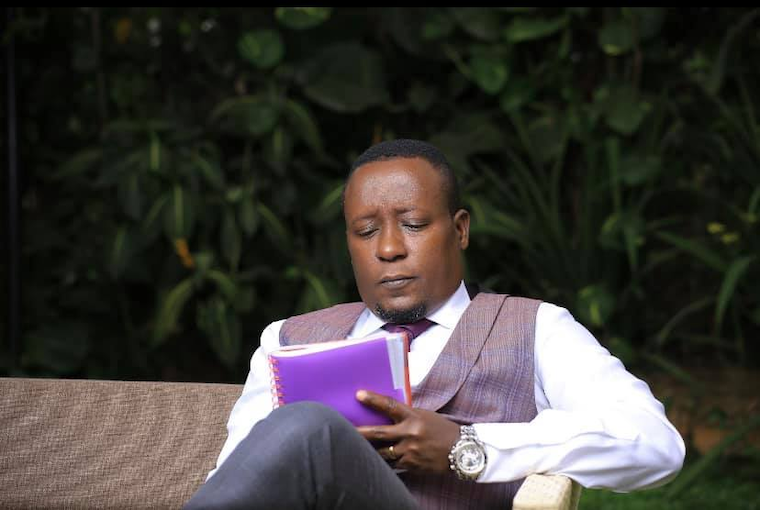
Joseph Kabuleta is no stranger to controversy, especially when it comes to his views. He will stick to his guns no matter what contrary evidence, especially on a disputable issue, is tabled.
This is a man who has sparked uproar with his anti-vaccination against Covid-19 and, more recently, against malaria. He has been arrested a number of times but Kabuleta has never backtracked and it is hard to ignore him. Instead, he continues to grow his legion of followers under his Watchman Fellowship.
Over the weekend, the former presidential candidate warned that Biblical prophecies are coming to life through increasing technological control. He made the remarks during the Watchman conference, which took place over the weekend at the Watchman Fellowship grounds in Nsambya.
The conference centered round the return of Jesus Christ, the new world trade order and the future of technology. Kabuleta pointed out that many Biblical prophecies appear to be aligning with contemporary events, warning of future challenges and urging the public to be prepared.
“Certain developments we are witnessing today were already foretold, particularly the growing control over finances, government, and human expression,” he said.
Reflecting on the Covid-19 pandemic, he described it as merely a preamble to a broader global shift. He pointed specifically to the rise of central bank digital currencies (CBDCs), which he said could drastically change how people interact with money, giving governments unprecedented control.
“You might have seen in the news, the central bank cryptocurrency. Those currencies are dangerous because the central bank can switch you off. They can decide what you can and can’t purchase,” Kabuleta said.
He gave an example: if governments, for environmental reasons, decide that each citizen should only consume 20 litres of fuel a month, they could program the digital currency to enforce that limit.
Once you reach your quota, you would no longer be able to buy more fuel regardless of your financial means. Kabuleta noted that, unlike the Covid-19 lockdowns where soldiers enforced restrictions, future lockdowns or movement restrictions could be implemented digitally, without any physical enforcement.
“For instance, if you’re registered in Kampala, your central bank digital currency can only function within Kampala. If you try to escape to another area, your digital currency will not work,” he explained.
He warned that such systems are already being implemented globally. In countries like the UK, France and Australia, digital IDs are now becoming essential for accessing jobs and services.
“A few countries will stand up and resist, but the trend is clear: when you have electronic money, someone else controls how you spend it. They can shut it off at any time,” he added.
Kabuleta referenced China’s social credit system as an alarming model. In that system, citizens lose points for minor offenses like traffic violations, leading to severe restrictions such as being unable to travel or even being digitally placed under house arrest without any need for police or soldiers.
“This is all sold to us as convenience, but the end goal is control. Money is freedom, but once it becomes entirely digital, it’s no longer yours to control. They can simply switch it off,” he warned. Kabuleta emphasized that these developments were foretold in the Bible, and are unfolding in our time. He called this growing control especially dangerous for younger generations, who are more immersed in technology. “Children today are highly influenced by technology. Many spend more time with artificial intelligence than with human relationships. We need to warn them about the dangers of becoming too reliant on technology,” he said.
He shared that during the Covid-19 period in the United States, many young people, influenced by online platforms, began making life-altering decisions such as changing their gender identity often without adequate guidance or understanding.
“Technology is meant to serve us, not control us. It should be kept outside the body, on our phones, not integrated into our physical being,” he stated.
He warned that the pursuit of digital convenience could result in the loss of personal freedom, as people gradually hand over control of their daily lives to invisible digital systems.
“We need to fight for freedom the freedom for people to live and express themselves as they choose. Convenience can be deceiving, and what looks like a good idea now might turn out to be very dangerous later,” he said.
Kabuleta reiterated that true freedom lies in control of your money, your data, your choices. In a fully digital world, he warned, that control could be lost.
“When you hold your keys, you control them. When you hold cash, you control it. But if everything becomes electronic, someone else controls it. People need to understand that this is heading in a very bad direction,” he warned.
He concluded with a stark reminder: Many people are walking into this digital future “with eyes wide shut,” unaware of what lies ahead until it’s too late.
“Technology is going to be a major tool of control in the future. The problem is that people will walk into it willingly, not realizing what they’re giving up until they can no longer turn back,” he cautioned.



